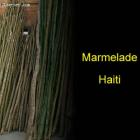ADVERTISEMENT
United States
U.S. Government protects UN from Prosecution for Cholera Epidemic
The Institute for Justice and Democracy in Haiti (IJDH) is fighting for the victims of a cholera epidemic that began nine months after the 2010 earthquake hit Haiti. Investigations as to how the epidemic started revealed the UN Stabilization Mission in Haiti was to blame. But the UN deflects responsibility for the epidemic, citing its immunity from prosecution.
In 2013, the IJDH filed a petition in a New York district court to bring a class-action lawsuit by five Haitian victims. The IJDH is asking for compensatory damages for 8,300 victims, who died, and nearly 700,000, who became deathly ill.
New Notre Dame d'Haiti Church in Little Haiti
For almost eight years, fundraising has been done for the building of the church of the new Notre Dame d'Haiti. The church, found on NE 62nd Street, was co-founded by Archbishop Thomas Wenski in 1981. Then, the old building was unable to hold a congregation that was growing with passing years. Thirty-five years ago, Archbishop Wenski dreamt of building this church which finally came into being after an expenditure of $5 Million. $3.2 million was donated by enthusiastic Haitian parishioners and members of the community and a $1.5 million loan was also provided by Archdiocese of Miami. The church can seat just under 1,400 worshippers.
Marc Elias, North Miami police chief resigns
It was near the end of summer when news of North Miami Police Chief Marc Elias being called into question about various trips he had made to his native Haiti since 2012 using public funds. Elias had said at the time his trips had been official, the last being to act as part of a security detail for North Miami Mayor Lucie Tondreau. While six of his 7 trips over the two-year period have been verified by the necessary documents, warranted compensation from the city, his last trip with the Mayor in August of 2013 did not follow suit. This, consequently, has led to his resignation from the post.
Maxine Waters Resolution to Honor 210th Anniversary of Haiti's Independence
The Haitian Earthquake is the worst earthquake disaster in recent memory. On the fourth anniversary of this devastating earthquake, Maxine waters, the Congresswoman who is better known as a leading advocate for the Haitian people in the U.S. Congress, introduced a bipartisan resolution to honor the 210th anniversary of Haiti's independence. Ms. Water along with four other members like John Conyers, Barbara Lee, Yvette Clarke and Frederica S. Wilson, have released a statement to honor those affected in that natural disaster in 2010 and salute the strength and resilience of the most vulnerable nation on the Western hemisphere--the Haitian people.
Haitian Community in Mount Olive, A Small Town in North Carolina
Mount Olive, a small town in Wayne County in rural North Carolina is best known for its pickle factories. The small town has recently received worldwide attention for its changing demographics. As many as 3000 Haitian population has been added so far with the town's population of 4,600. Haitian immigrants from toddlers to grandmothers have flooded this tiny hamlet south of Goldsboro.
There are many stories behind how this transition started. At the most basic, every story goes like this: in late summer of 2010, a Haitian who was working at the Butterball plant in Mount Olive once heard that his boss has to replace a dozen of his workers because their work permits have some problems. The Haitian worker came forward to solicit new workers from his country. He first called an aspirant friend in Miami, who again called some of his mates in other places. Two days later, two vans packed with energized Haitians arrived at Butterball who were offered immediate jobs. This was the beginning of exodus. Another similar wave of immigrants came twelve years ago when Mexican workers came to pick cucumbers for pickle factories.
Barack Obama meeting Haitian President Michel Martelly
The U.S President Barack Obama, on 6 February, 2014, has appreciated Haiti's progress toward delayed legislative election and renewed America's promise to assist in the re-structural program on cleaning up of the 2010 earthquake damage. This was the first official sit-down between President Barack Obama and President Michel Martelly. The U.S President at the start of this Oval Office meeting has said, he was happy because many international aids flowed to the country since the tormenting earthquake hit Haiti four years ago at magnitude 7.0 and killed around 300,000 people and left 1.5 million Haitians homeless.
U.S. intelligence view on Haiti
A recent report from the Director of the U.S. National Intelligence Agency has revealed that as per its assessment on worldwide threat, the stability in Haiti will remain susceptible due to poverty and weak governing institutions. . The Office of Intelligence and Threat Analysis (ITA) monitors, researches and analyzes on matters related to international and domestic terrorism on behalf of Diplomatic Security Service (DS) and U.S. intelligence community. Haiti's development projects and security issues mostly depend upon the assistance from international communities.
The country has planned to increase the size of its security force from 10,000 to 15,000 by 2016 but we should also remember that the international support which is presently vital for the country's sustenance is gradually fading. The process of reconstruction and development programs in Haiti should be continued with a long term perspective. The Haitians have learned not to trust politicians from their experiences. Moreover, the country has remained defenseless to natural disasters, food shortage, unemployment, poverty and many other issues which have continuously retarded every development process.
U. S. Embassy New Policy for Visa Appointments in Haiti
Consul General of the United States Embassy, Jay Thomas Smith, held a media conference at the American Embassy to discuss the processing of temporary visas. It seems a number of travel agencies wanting to jump to the head of the line to get temporary visas are running a scam, which is increasing the wait time for general applicants to receive their visas.
Travel agencies are using made-up numbers, which the U.S. Embassy does not question, in order to save chunks of appointment times for their employees. As a result of snatching appointment times away from general applicants, wait times have increased through no fault of their own or the U.S. Embassy's.
Haiti removed from imminent danger area List
Did you know that Haiti was one of the countries in the world designated by United States Department of Defense (DOD) as "imminent danger areas". Haiti found itself in that class along with eight other "land areas". The others countries are East Timor, Liberia, Oman, Rwanda, Tajikistan, United Arab Emirates, Kyrgyzstan, and Uzbekistan.
So what is it exactly? Is this good or bad? How did Haiti manage to get in that list?
The combatant commands conducted in-depth threat assessments on a regular basis to determine the level of imminent threat to US military personnel due to civil insurrection, civil war or act of terrorism. Based on their evaluation, Haiti was one of the many countries determined to be in the list.
U.S. aid and trade policies characterized as disastrous to Haiti
Many people might view the established custom of the United States to provide food aid to Haiti as a beneficent act to a struggling country; a selfless act that operates at a loss to the American taxpayer. But the truth is U.S. aid and trade policies may well do more for American farmers than for the average Haitian. In fact, U.S. aid, as Haiti has been experiencing it for the past few years, has done the country, its agricultural sector and its citizens, more harm than good.
Somewhere between 50% and 60% of the population of Haiti rely on their own small farms for subsistence. The practices and policies attached to U.S. Aid food operate in such a way that the livelihoods of farmers and subsequently the Haitian Agricultural Sector are negatively affected. Today, Haiti imports no less than 50% of the food it consumes, making itself America's second largest importer of rice. This problem was detailed in a study done in 2006 that showed that nearly 100,000 people were negatively impacted by the lowering of Haitian chicken, rice and sugar tariffs.
Our objective is to share with you news and information about Haiti and the people of Haiti. Traditions, habits and the way we were or grew are alive in this site. We highly recommend that you Subscribe to our Newsletter and also share with us some of the things that are memorable and made us unique people.

 La Chapelle, Haiti
La Chapelle, Haiti  Newsletter
Newsletter  Haitian Thanksgiving
Haitian Thanksgiving  Marmelade, Haiti
Marmelade, Haiti  Something to think about
Something to think about